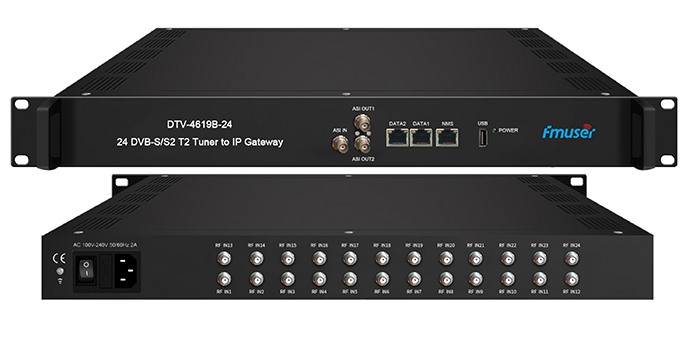IPTV Gateway

Table of contents
Estimated reading time: 3 minutes
Maximizing Internet TV Efficiency: Understanding the Role of IPTV Gateways
Introduction:
IPTV Gateways (Internet TV HUB) serve as pivotal components in the architecture of Internet TV networks, facilitating the seamless delivery of content to viewers.
What is an IPTV Gateway?
An IPTV Gateway acts as a bridge between traditional broadcast networks and internet-based IPTV services. It functions as a key entry point, receiving incoming streams from various sources and distributing them efficiently to subscribers. IPTV Gateways play a crucial role in managing network traffic, ensuring the smooth transmission of audiovisual content.

Key Features and Functionality:

IPTV Gateways offers a plethora of features designed to enhance the viewing experience and optimize network performance. One notable feature is their ability to support multiple protocols, including UDP, RTP, and HTTP, allowing for versatile content delivery. These gateways often incorporate advanced packet filtering and Quality of Service (QoS) mechanisms to prioritize traffic and minimize latency. Moreover, IPTV Gateways are equipped with robust security measures to safeguard against unauthorized access and content piracy.
Applications and Use Cases:
In addition to their role in content delivery, IPTV Gateways find applications in various Internet TV scenarios. For service providers, Internet TV Gateways enables the creation of customized channel lineups and subscription packages tailored to specific demographics. They also facilitate the integration of interactive services such as video-on-demand (VOD) and time-shifted viewing, enhancing user engagement. Furthermore, Internet TV Gateways support the delivery of high-definition (HD) and ultra-high-definition (UHD) content, catering to the growing demand for high-quality video experiences.
Challenges and Considerations:

Despite their numerous benefits, IPTV Gateways present certain challenges that operators must address. One such challenge is scalability, as IPTV networks continue to expand, necessitating gateways capable of handling increasing traffic volumes. Additionally, interoperability with existing infrastructure and compatibility with emerging technologies pose ongoing considerations for deployment. Furthermore, ensuring network resilience and uptime remains critical, requiring redundant gateway configurations and failover mechanisms.
Future Trends and Innovations:
Looking ahead, advancements in IPTV Hub technology are poised to shape the future of IPTV services. The integration of artificial intelligence (AI) and machine learning algorithms promises to optimize content delivery and personalize user experiences. Moreover, the adoption of software-defined networking (SDN) and network functions virtualization (NFV) is expected to revolutionize gateway architectures, enabling greater flexibility and agility. Furthermore, the emergence of 5G networks holds the potential to unlock new opportunities for IPTV delivery, leveraging ultra-fast connectivity and low latency.
Conclusion:
In conclusion, IPTV Hubs play a pivotal role in the modern television landscape, enabling the efficient delivery of content to viewers worldwide. By understanding the functionalities, applications, and challenges associated with Internet TV Gateways, service providers can optimize their networks and deliver compelling Internet Protocol Television experiences to subscribers.



0 Comments